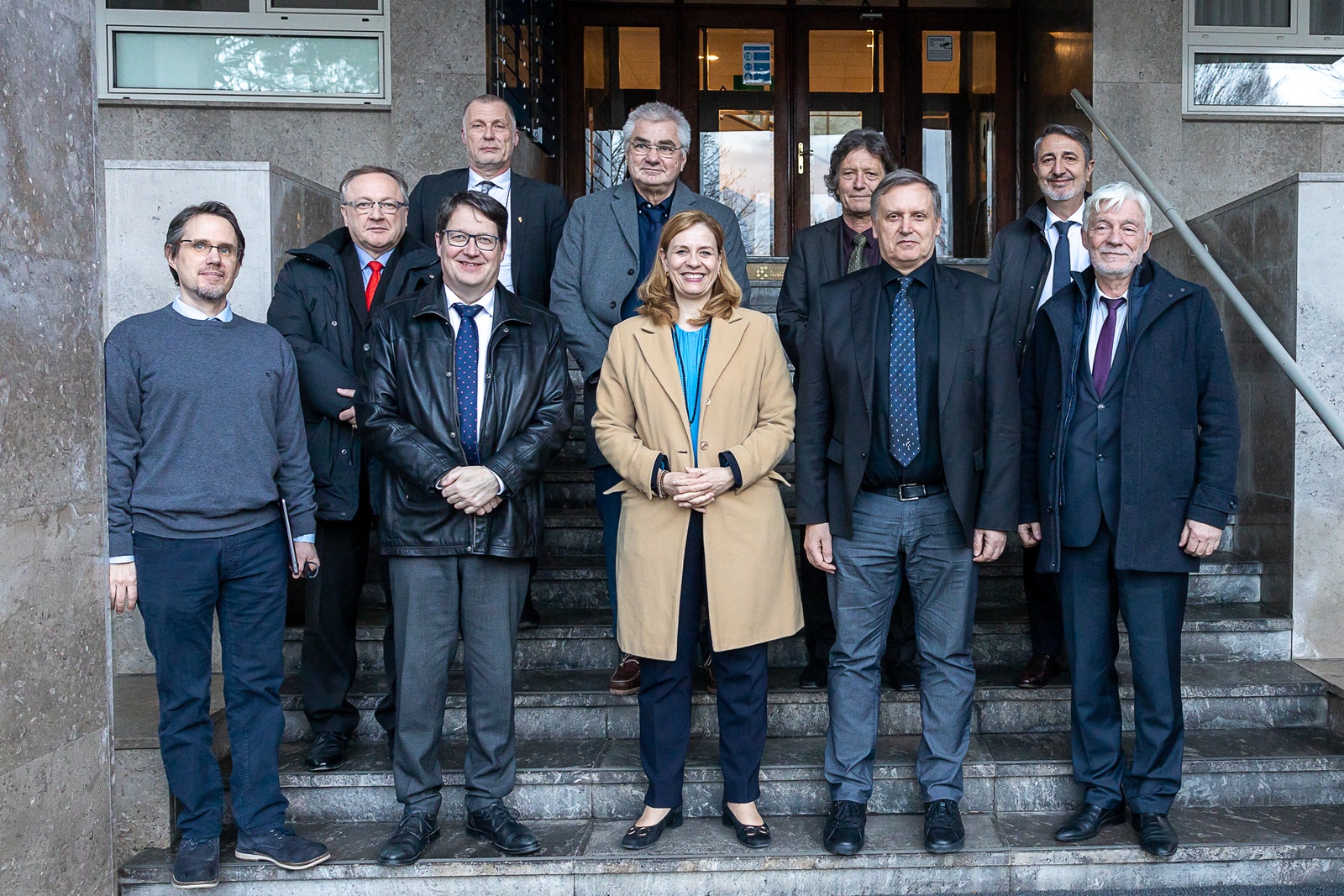Meeting of the rector of the University of Nova Gorica, Prof. Dr. Boštjan Golob, with the CERN delegation
On 19 February 2024, the rector of the University of Nova Gorica, Prof. Dr. Boštjan Golob, met with the CERN delegation at the "Jožef Stefan" Institute. They are currently in Slovenia for an official visit.

The European Organisation for Nuclear Research (CERN) is celebrating its 70th anniversary this year. Also this year, Slovenia and CERN will be completing the process for full membership in this prestigious scientific and research organisation. The first step is the visit of a formal delegation from CERN, which is tasked with assessing the readiness of our country. On 19 February 2024, the delegation met at the "Jožef Stefan" Institute with the director of the institute, Prof. Dr. Boštjan Zalar, the rector of the University of Nova Gorica, Prof. Dr. Boštjan Golob, the vice-rector of the University of Ljubljana, Prof. Dr. Anton Ramšak, and the dean of the Faculty of Mathematics and Physics of the University of Ljubljana, Prof. Dr. Janez Bonča. At the Faculty of Mathematics and Physics of the University of Ljubljana, the director of CERN for research and computing environment, Prof. Dr. Joachim Mnich, held a lecture presenting the future of particle physics.
In the year of the 70th anniversary celebration, CERN and Slovenia will carry out all the necessary procedures, meaning we can expect Slovenia's full membership in 2025. The main advantages of cooperation with CERN for scientists are the use of infrastructure and research, gaining new experience, and building a network of connections with scientists from other parts of the world. Slovenian scientists working at CERN today are mainly part of the ATLAS project (more than 40 scientists and doctoral students so far).
As the rector of the University of Nova Gorica, Prof. Dr. Boštjan Golob, said during the visit: "what full membership really means is that a member state has access to all the facilities of CERN, has access to certain positions within this European organisation, and it is especially important that companies from a member state have much better opportunities of cooperation and obtaining orders."
Researchers from Slovenia already play an important role in CERN. Full membership will only further affirm their standing. They are taking leading roles in research, as well as in the management and upgrading of the ATLAS experiment. Membership will also enable Slovenian scientists to fully participate in the management of CERN's infrastructure, and thereby ensure better and permanent access to it. They will also be on an equal footing with scientists from other permanent member states, able to compete for research positions and participate in other programmes and educational courses financed by CERN.
"The University of Nova Gorica cooperates with a small section in the experimental physics of elementary particles and the astrophysics fields. We are certain that we can strengthen cooperation in the field of research as well. Even so, there won't be any significant changes for us as researchers. We will simply continue participating in top-level research in the future, just as we have been so far", commented Prof. Dr. Golob.
As a full member state, Slovenia will also gain voting rights in the CERN Council, which is the highest decision-making body of this organisation.
This particular year, as the process for full membership begins, is important not only for Slovenia, but also for CERN, as it celebrates its 70th anniversary. They will be presenting their 70-year contribution to science, research, technology and innovation, as well as looking into the future with a number of different events. The main ceremony will take place on 1 October 2024. A special event will also be held in the summer months at the "Jožef Stefan" Institute and the Faculty of Mathematics and Physics of the University of Ljubljana.
Today, CERN has 23 full members, ten associate members, with Slovenia being one for now, and more than 17,000 people from all over the world working under its auspices, united by their dedication to science for the benefit of humanity.
Source: "Jožef Stefan" Institute
